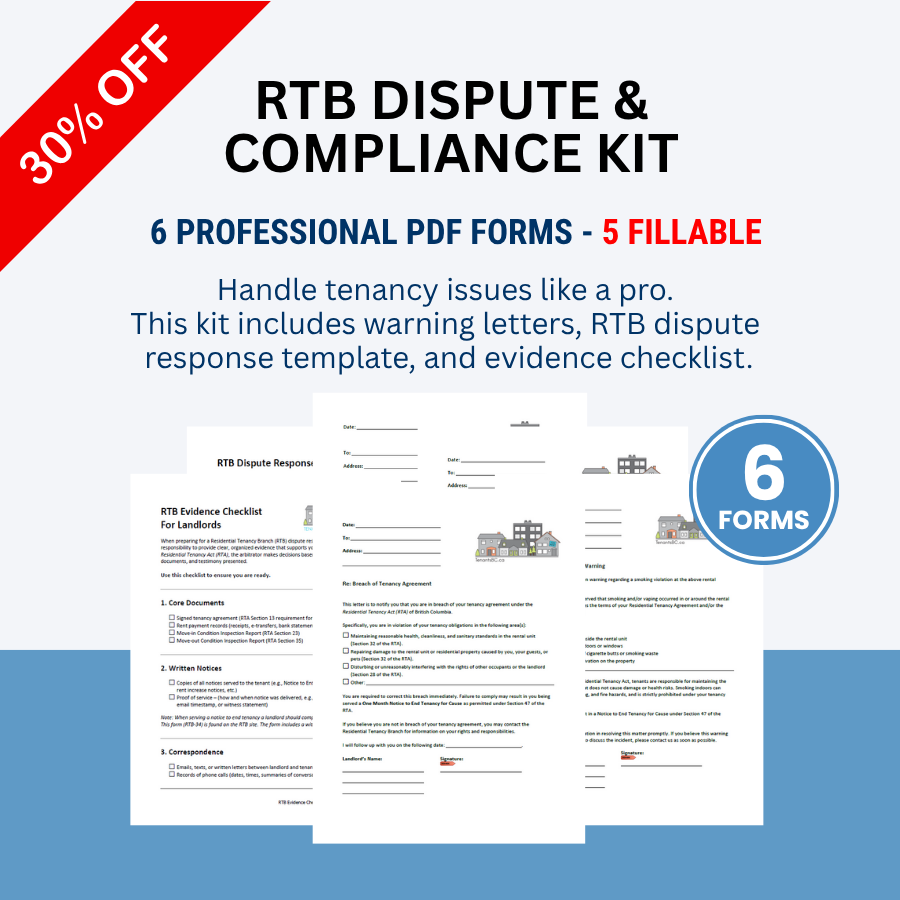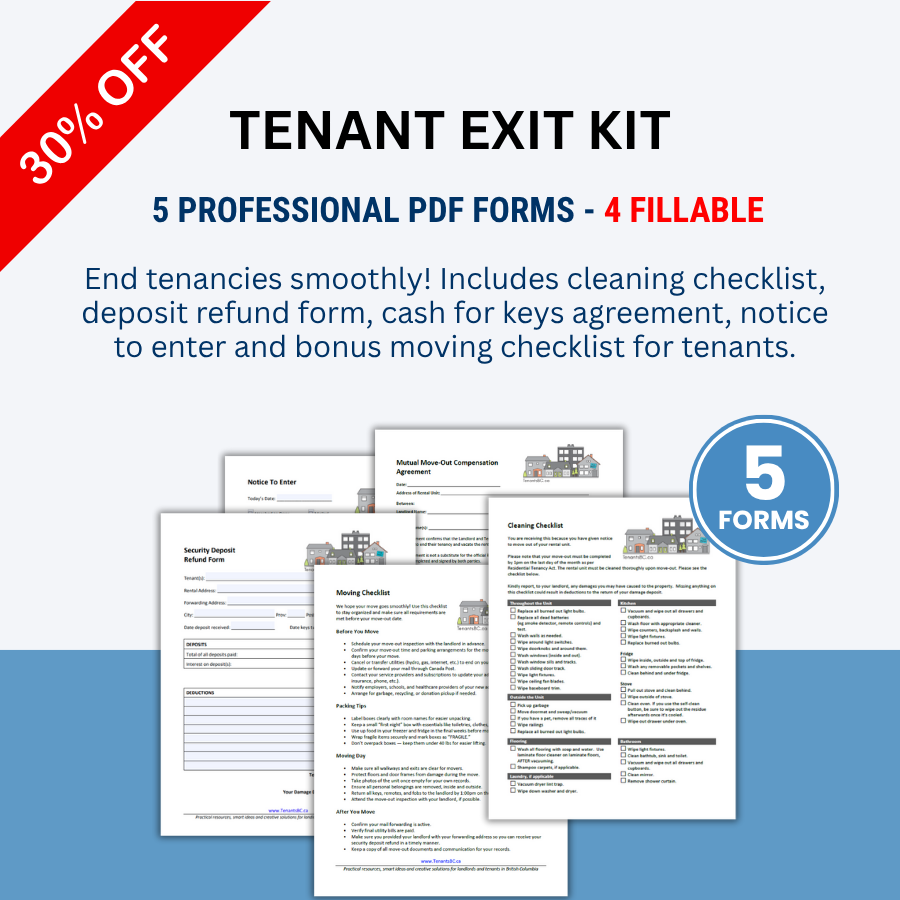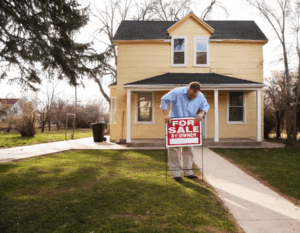Disputes at the Residential Tenancy Branch (RTB) can be stressful for landlords, especially when emotions run high or misunderstandings arise. However, with careful preparation and an understanding of your rights and responsibilities, landlords can position themselves effectively and increase the likelihood of a fair outcome.
The foundation of any strong dispute response is thorough documentation. Keeping detailed records of rent payments, inspection reports, correspondence with tenants, and notices served can make a significant difference. Organized documentation shows the RTB arbitrator that you are professional and consistent in your management practices. Even small details, like keeping a timeline of communications, can provide clarity in disputes that might otherwise rely solely on conflicting statements.
Understanding and applying the Residential Tenancy Act (RTA) is another key factor. Being familiar with your legal obligations and the tenant’s rights ensures that your actions are compliant and defensible. This includes serving proper notices, providing adequate entry for inspections or showings, and following correct procedures for rent increases or deposit returns. Clear knowledge of the RTA helps prevent unintentional breaches that could weaken your position in a dispute.
Preparation is not only about documents and legal knowledge but also about presenting your case clearly and professionally. Arbitrators are more likely to favor a landlord who presents evidence logically and communicates in a calm, factual manner.
Organizing your information, labeling supporting documents, and outlining your position in writing can help the RTB process run more smoothly and reduce the stress of the hearing itself.
For landlords looking for a practical way to stay organized and confident, the RTB Dispute Response Bundle provides a ready-to-use fillable template and an evidence checklist. These tools help you structure your response, gather key documentation, and present your case clearly to the RTB, making the process less stressful and more manageable.
Another important aspect is proactive communication with tenants. Addressing concerns early, providing reminders, and clarifying expectations can prevent disputes from escalating to the RTB in the first place. Landlords who maintain consistent, polite, and documented communication often find that issues are resolved faster and with less conflict.
Finally, landlords should focus on staying objective and composed throughout the process. Emotional responses or confrontational behavior can complicate matters and negatively influence the outcome. Maintaining professionalism, coupled with solid evidence and adherence to the RTA, positions landlords to handle disputes effectively and confidently.
In summary, the best way for BC landlords to protect themselves in RTB disputes is through careful documentation, compliance with the RTA, clear presentation of evidence, proactive communication, and professional conduct. By approaching disputes with preparation and calm, landlords can increase their chances of a positive resolution and minimize unnecessary stress.












